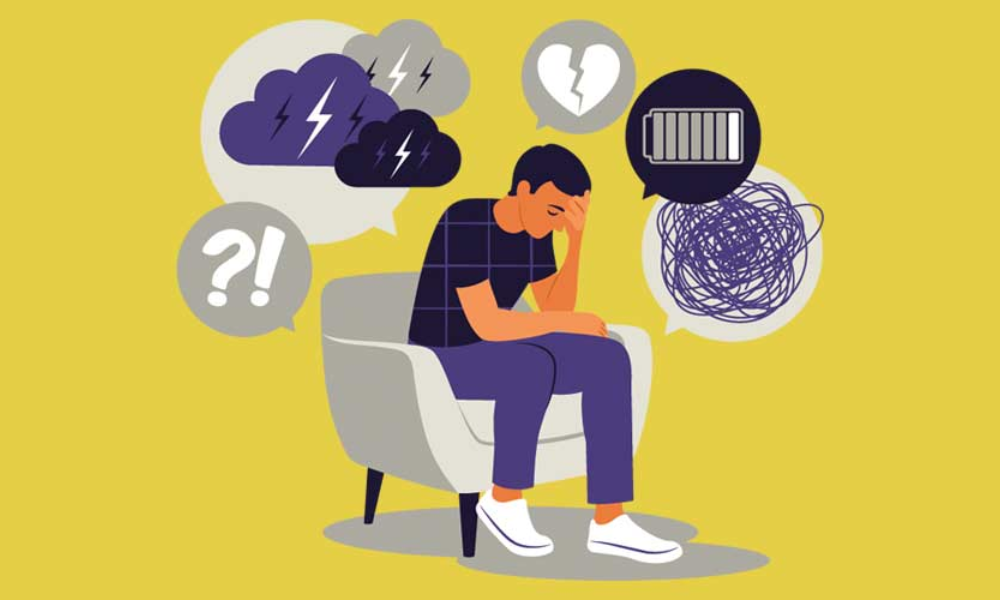Teenage depression is a serious mental health issue that affects many adolescents, impacting their emotional, functional, and physical well-being.
As an educational expert, it is crucial to provide parents and students with the necessary information to recognize and address this condition effectively.
What is Teenage Depression?

Teenage depression goes beyond the typical moodiness associated with adolescence.
It is a persistent feeling of sadness, hopelessness, and a lack of interest in activities that were once enjoyable. This condition can interfere with a teenager’s daily life, causing emotional, functional, and physical problems.
Symptoms of Teenage Depression
Recognizing the signs of teenage depression is the first step towards getting help. Symptoms can vary in severity and may manifest differently in teens compared to adults. Key symptoms include:
Emotional Changes
Emotional changes may include persistent sadness and crying spells, feelings of hopelessness or emptiness, and irritability or frustration that can escalate into anger over minor issues. A loss of interest in previously enjoyed activities is also common, accompanied by low self-esteem, feelings of worthlessness or guilt, and extreme sensitivity to rejection or failure. Concentration, decision-making, and memory may be affected, and, in some cases, thoughts of death, dying, or suicide can arise.
Behavioral Changes
Behavioral changes, fatigue and loss of energy, insomnia or excessive sleeping, changes in appetite (including weight loss or gain), use of alcohol or drugs, agitation or restlessness, frequent complaints of physical aches and pains, social withdrawal, poor school performance, neglect of personal hygiene, and risky or self-destructive behavior (such as self-harm).
Causes of Teenage Depression

The exact cause of teenage depression is not known, but several factors may contribute to its development:
Biological Factors
Imbalances in neurotransmitters can affect mood regulation, while hormonal changes—such as those experienced during puberty—can trigger depression. Additionally, having a family history of depression increases the risk of developing the condition.
Environmental Factors
Trauma and abuse, including physical, emotional, or sexual mistreatment during childhood, can lead to depression. Stressful life events—such as the death of a loved one, parental divorce, or other significant changes—also play a role. Additionally, persistent bullying or cyberbullying often creates feelings of helplessness, which may contribute to depression.
Psychological Factors
Learned helplessness and negative thinking patterns can contribute to depression, while low self-esteem—characterized by persistent negative self-perception and self-criticism—also plays a significant role.
Risk Factors for Teenage Depression

Certain factors can increase the likelihood of developing depression in teenagers:
- Having issues that negatively impact self-esteem, such as obesity or academic problems
- Witnessing or being a victim of violence or abuse
- Having other mental health conditions like anxiety, ADHD, or eating disorders
- Chronic physical illnesses such as diabetes or asthma
- Personality traits such as low self-esteem or being overly self-critical
- Substance abuse
- Unsupportive environments, especially for LGBTQ+ teens
Complications of Untreated Depression

If left untreated, teenage depression can lead to severe complications, including:
- Substance misuse
- Academic problems
- Family conflicts and relationship difficulties
- Suicide attempts or suicide
Prevention and Treatment

While it may not be possible to prevent depression entirely, certain strategies can help reduce the risk and mitigate the effects:
Prevention Strategies
- Encourage stress management and resilience-building activities.
- Promote self-care, including healthy sleep routines and responsible electronics use.
- Foster strong social support networks.
Treatment Options
Effective treatment for teenage depression often involves a combination of approaches:
1. Psychotherapy
- Cognitive Behavioral Therapy (CBT): Helps teens recognize and change negative thought patterns.
- Family Therapy: Addresses family dynamics that may contribute to depression.
- Interpersonal Therapy (IPT): Focuses on improving relationships and communication skills.
2. Medication
- Antidepressants can be effective but require careful monitoring for side effects, especially in young people.
3. Lifestyle Changes
- Encourage regular physical activity.
- Promote a balanced diet rich in nutrients that support brain health.
- Ensure adequate sleep and limit screen time.
Supporting a Depressed Teen

Parental support plays a critical role in the recovery process. Here are some practical tips for parents:
Communication
- Open a dialogue by expressing concern and willingness to listen without judgment.
- Be patient and persistent, even if your teen initially resists discussing their feelings.
- Validate their emotions and avoid minimizing their experiences.
Encouraging Social Connection
- Help your teen maintain relationships with friends and family.
- Limit social media use and encourage face-to-face interactions.
- Involve your teen in activities that align with their interests and talents.
Professional Help
- Seek the guidance of a mental health professional if symptoms persist or worsen.
- Involve your teen in treatment decisions to increase their engagement and motivation.
Self-Care for Parents
- Take care of your own mental and physical health.
- Reach out to support groups or therapists for yourself if needed.
- Keep open lines of communication with other family members and ensure siblings are also supported.
Conclusion
Understanding and addressing teenage depression is crucial for the well-being of adolescents.
By recognizing the symptoms, understanding the causes and risk factors, and seeking appropriate treatment, parents and educators can help teens navigate this challenging period.
Early intervention and ongoing support are key to helping teenagers overcome depression and lead fulfilling lives. At Ecole Globale Schools, we are committed to providing a supportive environment where every student can thrive.
Frequently Asked Question
Q1: Can teenage depression be prevented?
Answer. While not entirely preventable, stress management, self-care, and strong social support can reduce the risk and mitigate effects.
Q2: How can I tell if my teen is depressed?
Answer. Look for symptoms like persistent sadness, irritability, loss of interest in activities, changes in sleep and appetite, and social withdrawal.
Q3: What causes teenage depression?
Answer. Causes include brain chemistry imbalances, hormonal changes, family history, trauma, stressful life events, and negative thinking patterns.
Q4: What are the risk factors for teenage depression?
Answer. Risk factors include low self-esteem, witnessing or experiencing abuse, other mental health conditions, chronic illnesses, and substance abuse.
Q5: How can untreated depression affect my teen?
Answer. Untreated depression can lead to substance misuse, academic problems, family conflicts, and suicide attempts.









